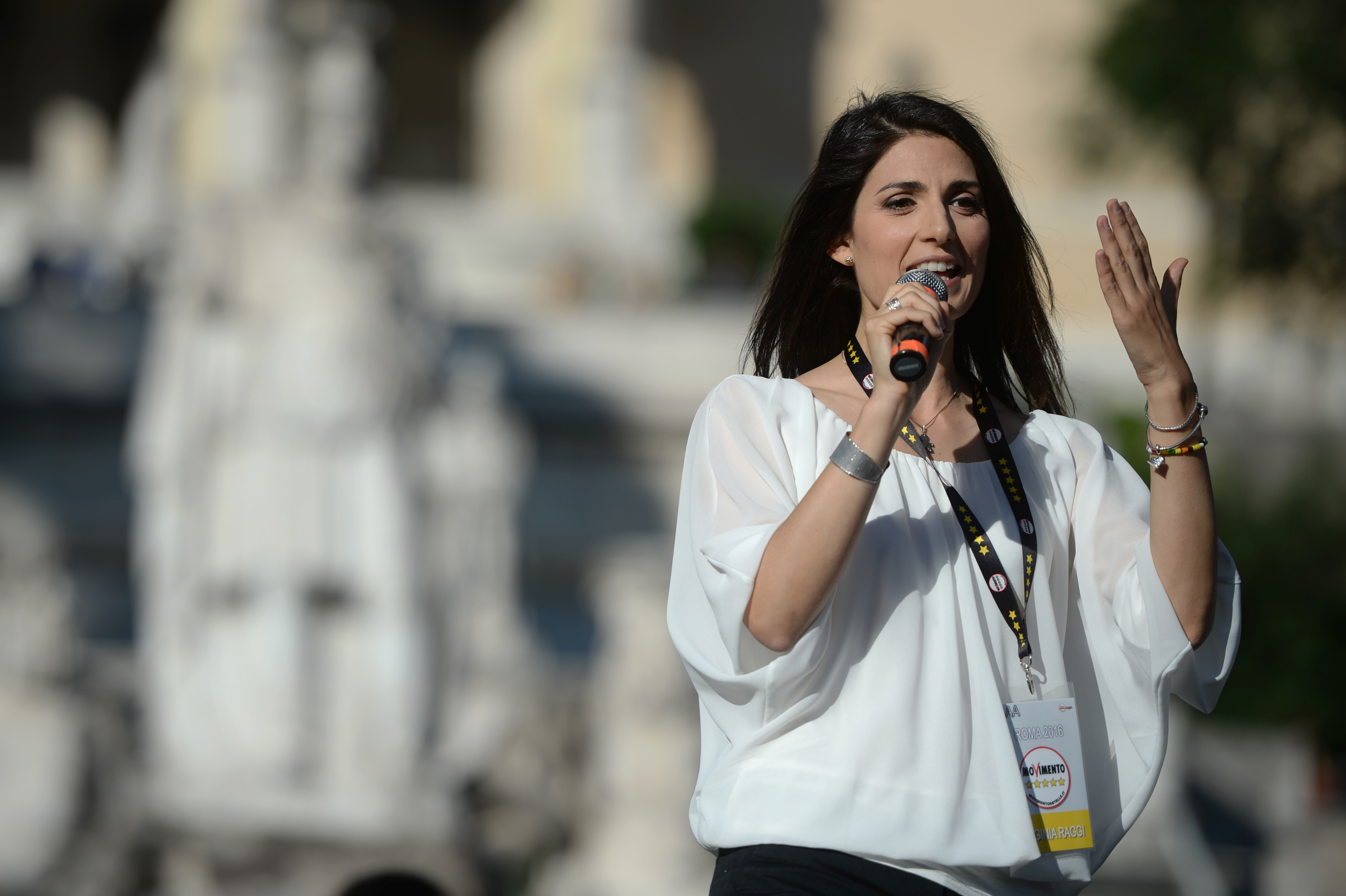
by Angus MACKINNON
ROME, Italy (AFP) — Virginia Raggi was elected Sunday as Rome’s first female mayor in a triumph for the populist Five Star Movement (M5S) that represents a stinging setback for Italian Prime Minister Matteo Renzi.
Raggi swept into City Hall with two thirds of the votes cast in a run-off contest with Roberto Giachetti of Renzi’s centre-left Democratic Party (PD).
The anti-establishment M5S also claimed control of the northern city of Turin, where another woman, Chiara Appendino, 31, ousted the sitting PD mayor with the help of backing from the far-right Northern League.
The only consolation for Renzi was that the centre-left held on to Milan, where the former World Expo director Giuseppe Sala squeezed home with 51 percent, as well as claiming predicted wins in Bologna and Naples.
“For the first time Rome has a female mayor in an age where equality of opportunity remains a mirage,” Raggi said in a typically coolly delivered victory speech.
“I will be a mayor for all Romans. I will restore legality and transparency to the city’s institutions after 20 years of poor governance. With us a new era is opening.”
In Turin, Appendino struck a similar note.
“We have made history,” she said. “This was not a protest vote, it was about pride and change.”
Time for change
Raggi, a 37-year-old lawyer and local councillor who was a complete unknown only a few months ago, had been widely expected to claim the keys to Rome’s Michelangelo-designed City Hall.
But the margin of her victory exceeded even the most ambitious expectations of a movement founded by comedian Beppe Grillo only seven years ago.
The party has since established itself as the major opposition force in Italian politics and analysts say victory in Rome will give it a platform to mount a challenge to Renzi in national elections due in 2018.
Raggi successfully tapped into widespread anger among voters over the state of the capital’s public transport and other services, widely seen as having been undermined by years of sleaze in the municipal administration.
“It’s time to change Rome,” was the battlecry of her campaign.
Her cause in the capital was helped by the ousting of her predecessor, the PD’s Ignazio Marino, over an expenses issue and a much bigger scandal over organised crime’s infiltration of the city administration.
In what is known as the “Mafia Capitale” case, dozens of local businessmen, officials and politicians are currently on trial for their involvement in a criminal network that ripped off the city to the tune of tens — if not hundreds — of millions of euros.
Olympics not a priority
Raggi has vowed to make such abuses impossible with far-reaching reforms of the way the local administration is run, as well as getting public services back on track.
But many analysts are sceptical about her ability to make a difference given her lack of experience and the city’s huge structural problems, which include debts of over 13 billion euros ($14.7 billion).
Raggi was a late entrant to politics, telling AFP recently that she had been inspired by the birth of her son Matteo to try and make her home city a better place for him to grow up in.
One area in which she is likely to make an immediate impact is on the credibility of Rome’s bid to host the 2024 Olympics.
She said during the campaign that she did not consider winning the Games as essential, arguing that the city has bigger problems it needs to address first.
“No Roman has asked me whether I back the Olympics,” she said, in comments that will delight rival cities Paris, Los Angeles and Budapest.
“They talk to me about transport, they talk to me about schools. (The Olympics) are not a priority, they’re really not a priority.”
© 1994-2016 Agence France-Presse








